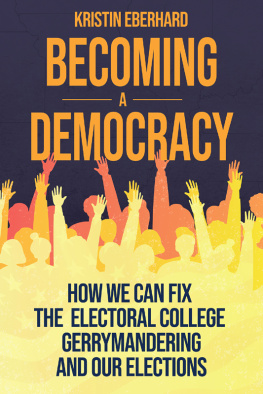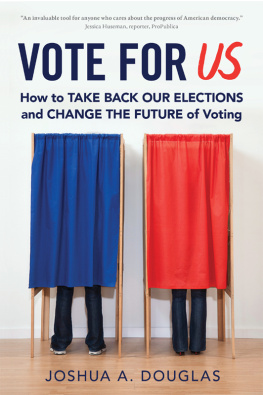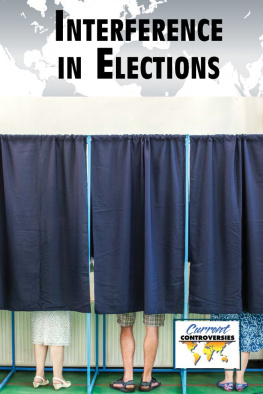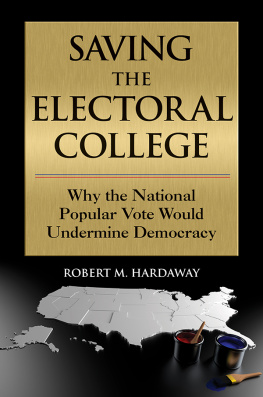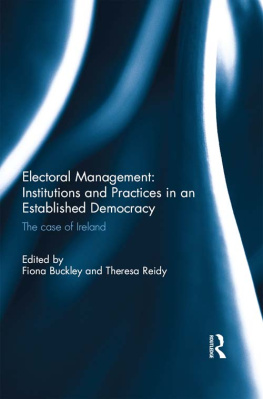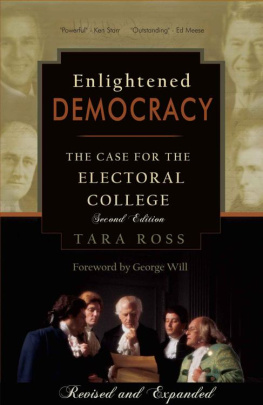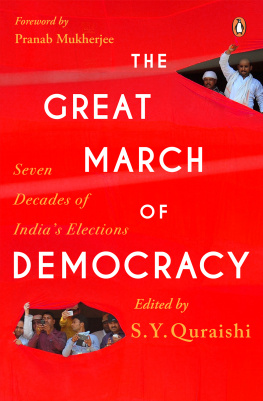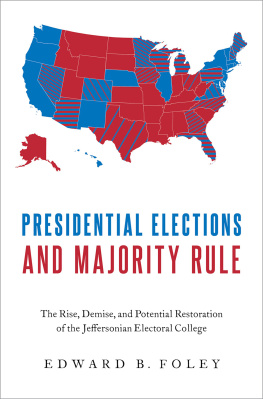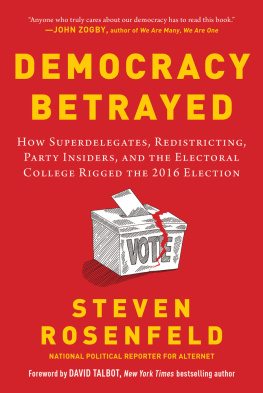Kristin Eberhard - Becoming a Democracy: How We Can Fix the Electoral College, Gerrymandering, and Our Elections
Here you can read online Kristin Eberhard - Becoming a Democracy: How We Can Fix the Electoral College, Gerrymandering, and Our Elections full text of the book (entire story) in english for free. Download pdf and epub, get meaning, cover and reviews about this ebook. year: 2020, publisher: BookBaby, genre: Politics. Description of the work, (preface) as well as reviews are available. Best literature library LitArk.com created for fans of good reading and offers a wide selection of genres:
Romance novel
Science fiction
Adventure
Detective
Science
History
Home and family
Prose
Art
Politics
Computer
Non-fiction
Religion
Business
Children
Humor
Choose a favorite category and find really read worthwhile books. Enjoy immersion in the world of imagination, feel the emotions of the characters or learn something new for yourself, make an fascinating discovery.
- Book:Becoming a Democracy: How We Can Fix the Electoral College, Gerrymandering, and Our Elections
- Author:
- Publisher:BookBaby
- Genre:
- Year:2020
- Rating:4 / 5
- Favourites:Add to favourites
- Your mark:
Becoming a Democracy: How We Can Fix the Electoral College, Gerrymandering, and Our Elections: summary, description and annotation
We offer to read an annotation, description, summary or preface (depends on what the author of the book "Becoming a Democracy: How We Can Fix the Electoral College, Gerrymandering, and Our Elections" wrote himself). If you haven't found the necessary information about the book — write in the comments, we will try to find it.
The United States wasnt built as a democracy. The Senate doesnt represent people. Both sides hate gerrymandering and the courts refuse to fix it. Our right to be heard is defeated by voter suppression and an Electoral College system that concentrates power in a handful of states and too often reverses the popular vote. But within our flawed system, we have the tools to tackle our most stubborn election problems by flexing state and local power (no constitutional amendments or courts required).
This should be the last American election that works against the people. Kristin Eberhard, Director of Democracy at Sightline Institute, thoughtfully researched how the U.S. election system is unjust to many by design, and walks us through 10 big but practical ideas for making our elections free, fair, and secure. Now is the time:
* More than half of Americans live in just nine states. That means less than half the population controls 82 percent of the Senate. It doesnt have to be that way. We can hope the Senate eliminates the filibuster. But while were holding our breath, what if we went further and remade the Senate to represent people?
* Voter suppression justified by trumped up fears of double voting and dead voters why? Theres already a simple, proven solution working in 30 states to keep voter lists secure and accurate.
* Feel stuck with the Electoral College reversing the popular vote? That isnt even in the Constitution! There is a path for states to ensure the candidate with the most votes wins (and were already on it).
* We could defeat gerrymandering and create a multi-party system where voters have more options, lawmakers get more work done, and extremists are relegated to the fringe, unable to take over a major party.
A field guide to better elections for both sides of the aisle, Becoming a Democracy illuminates the meaningful, concrete actions that can transform our elections and make sure everyones vote counts (and that they get to vote in the first place).
Eberhard delves into the history and evolution of our flawed systems, showing their impact on voters the outcomes of our elections, and the perpetuation of racist policies.
* American voters arent going to elect the American president. Twelve states are.
* One in every 13 Black adults could not vote as the result of laws limiting voting rights for people with felony convictions, as of 2016.
* Some 23 million American citizens who are eligible to vote could not exercise that right if all states had strict voter ID laws. * More than one in ten voting-age citizens do not have a current, government-issued photo IDif youre in a state with a strict Voter ID law, that means no vote.
* The Supreme Court cleared the way for states to purge 2 million voters from the rolls between 2012 and 2016.
She also shows how states across the country are changing all that with proven solutions for running fair elections and making every vote count.
* Thirty states are members of a secure and modern system to keep voter rolls clean. Together, theyve removed more than 300,000 names of deceased voters from their rolls and updated addresses for nearly 10 million eligible voters.
In the 2020 primary, Montana mailed ballots to all registered voters. It saw the highest voter turnout in more than 40 years.
* In the 2014 midterm elections, voter participation in Vote At Home states across the nation was on average 23 percent higher than in other states.
* In 2018, Maine voters used ranked ballots to elect members of Congress. A four-way race for a House seat would have elected someone with only minority...
Kristin Eberhard: author's other books
Who wrote Becoming a Democracy: How We Can Fix the Electoral College, Gerrymandering, and Our Elections? Find out the surname, the name of the author of the book and a list of all author's works by series.

